Cambodia needs to avoid putting all its eggs in the Chinese basket
Cambodia's post-pandemic foreign policy is constrained by the need to sustain its economic growth while maintaining independence and sovereignty, amid the challenge and uncertainty caused by the growing strategic competition between China and the US. Academic Kimkong Heng says Cambodia needs to refrain from actions that appear to serve China's core strategic interests, proactively engage all strategic partners, and walk a diplomatic tightrope between China and the US.
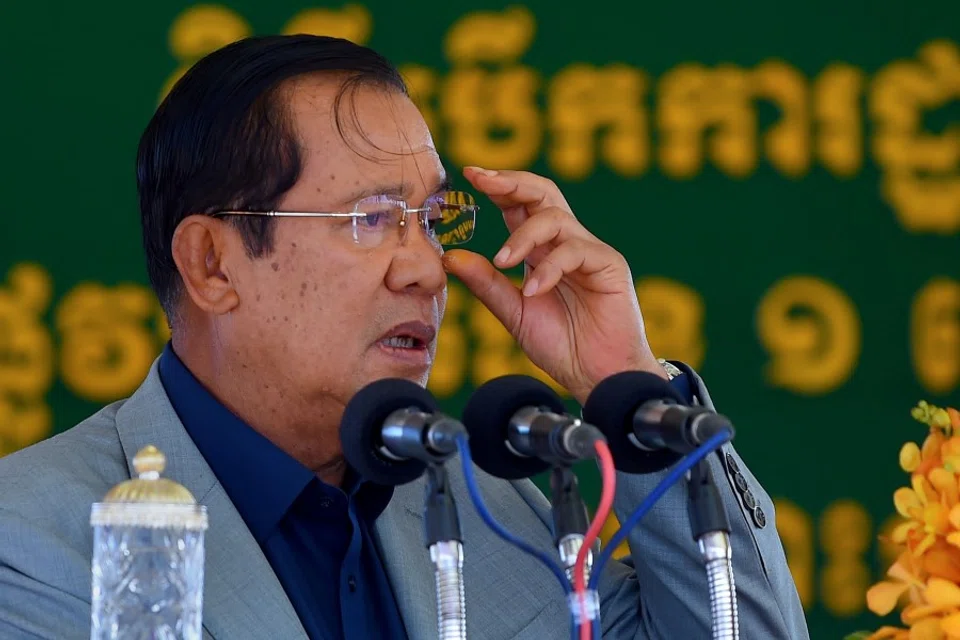
With about two-thirds of its 16 million population under the age of 35, Cambodia is home to one of the youngest populations in Southeast Asia. It has enjoyed an average annual GDP growth rate of 7% over the past 20 years, and transformed itself from a war-torn country with a GDP per capita of around US$250 in 1993 to a lower-middle-income country with a GDP per capita of about US$1,600 in 2019. It has been relatively successful in poverty reduction, cutting poverty rate from 53.2% in 1994 down to 13.5% in 2014. In 2018, only about 13% of its population lives below the national poverty line.
Since 1998, Cambodia has enjoyed full peace, due to Prime Minister's Hun Sen's win-win policy, making substantial socioeconomic progress and infrastructure development. However, the country faces a number of critical issues. For example, it remains plagued by corruption and nepotism. In 2019, the country was ranked 162nd out of 180 countries in Transparency International's Corruption Perceptions Index. That same year, its judicial independence was ranked 116th out of 141 countries with the reliability of its police services ranked 120th among 141 countries. Cambodia's university students tend to graduate with skills that do not match the current needs of the labour market.
Phnom Penh's close alignment with Beijing has raised eyebrows among countries in the region, and among China's competitors such as the US and the European Union.
In foreign affairs, Cambodia as a small developing state faces considerable challenges in the conduct of its foreign policy. In fact, its foreign relations approach has been criticised for its lack of neutrality and independence, and it is seen to be leaning heavily towards China. Phnom Penh's close alignment with Beijing has raised eyebrows among countries in the region, and among China's competitors such as the US and the EU. As a consequence, both the US and the EU have imposed different forms of sanctions on the Cambodian government, citing deterioration of the human rights situation and democracy in Cambodia.
The US has, in particular, imposed visa sanctions and frozen the assets of several of Cambodia's senior military officers and tycoons who have close ties with the ruling party. For the EU, it has decided to partially withdraw its Everything But Arms (EBA) trade scheme from Cambodia, a scheme that was to encourage Cambodia to reverse its authoritarian turn, following an unprecedented crackdown by the ruling party on the media and political opponents.
Thus, considering the dual impact of the Covid-19 pandemic and the EU's partial EBA withdrawal alongside mild sanctions by the US, there are huge foreign policy challenges confronting Cambodia. These have grown in strength and magnitude, and this article highlights three of these.
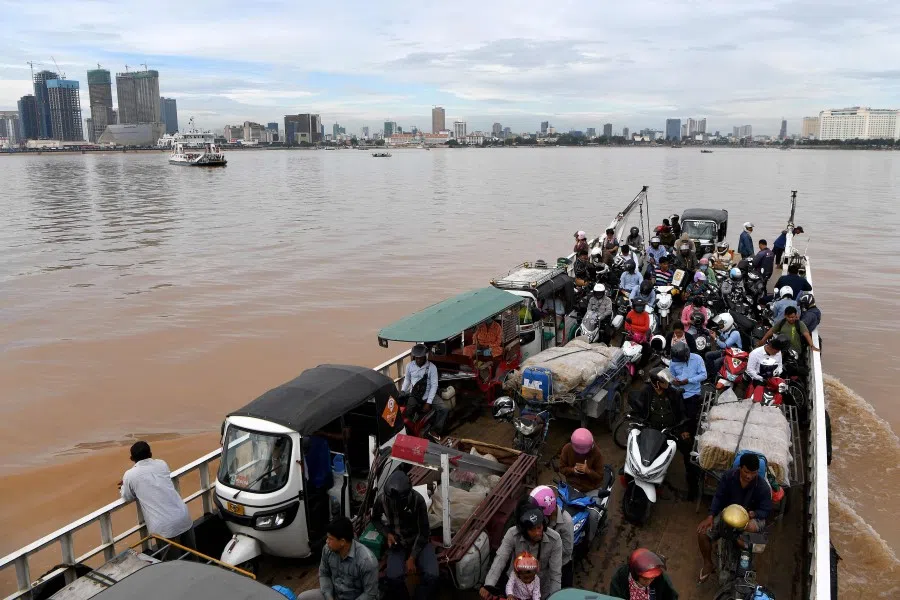
Balancing economic growth and national independence
First, Cambodia has to contend with the seemingly opposing goals of pursuing economic growth on the one hand and protecting its national independence and sovereignty on the other. The government brought up a narrative of "independence, sovereignty and territorial integrity" as well as the maintenance of "peace and stability" in response to the EU that announced a procedure in 2018 to withdraw its EBA trade scheme, which grants "full duty-free and quota-free access to the EU Single Market for all products (except arms and armaments)".
Impacted by Covid-19, Cambodia's economy is headed for its slowest growth since 1994. The World Bank's projection shows that Cambodia could register a negative growth rate, contracting between -1 and -2.9 % in 2020. The prediction made by the Asian Development Bank is worse - Cambodia's economy may drop from an average annual growth rate of 7% to -5.5% this year.
Prioritisation of economic growth will surely lead Cambodia to be closer to China, its closest ally, biggest investor and largest trading partner.
Thus, it is undeniable that Cambodia will prioritise economic recovery and growth post-Covid-19. Economic growth has been the cornerstone of Cambodia's foreign policy, and it is bound to become more prominent and urgent after the pandemic. Economic development has been a strong source of legitimacy for the ruling party and for the current government. Hun Sen has been in power for 35 years, making him one of the longest-serving heads of state in the world.
Prioritisation of economic growth will surely lead Cambodia to be closer to China, its closest ally, biggest investor and largest trading partner. Thus, Cambodia's foreign policy will continue to be seen as tilting towards China, and raise doubts about the government's constant refrain that its foreign policy is neutral and interdependent, which, in turn, undermines Cambodia's standing as an independent and sovereign country.
Navigating US-China rivalry
Second, the discussion of Cambodia's foreign policy post-Covid-19 will centre on how Cambodia will navigate the US-China rivalry. Historically, Cambodia's dependence on foreign powers had often led to loss of land, people and power. The country had a hard time navigating its relations with Thailand and Vietnam, its traditional enemies. It sought protection from France in the 19th century and became a French colony for 90 years (1863-1953). Following independence from France, Cambodia had a complex relationship with the US, China, and Vietnam throughout the Cold War era. This overdependence on foreign powers and internal conflicts led the country to destruction under the genocidal Khmer Rouge regime between 1975 and 1979. After the collapse of the Khmer Rouge, Cambodia was occupied by Vietnam for ten years until 1989.
This brief historical account demonstrates that overdependence on a single power is not a viable foreign policy; however, Cambodia does not seem to have learned that lesson. The country is now seen to lean heavily toward China, causing great concerns among its peers in the region and key players in the Indo-Pacific, such as the US and its allies.
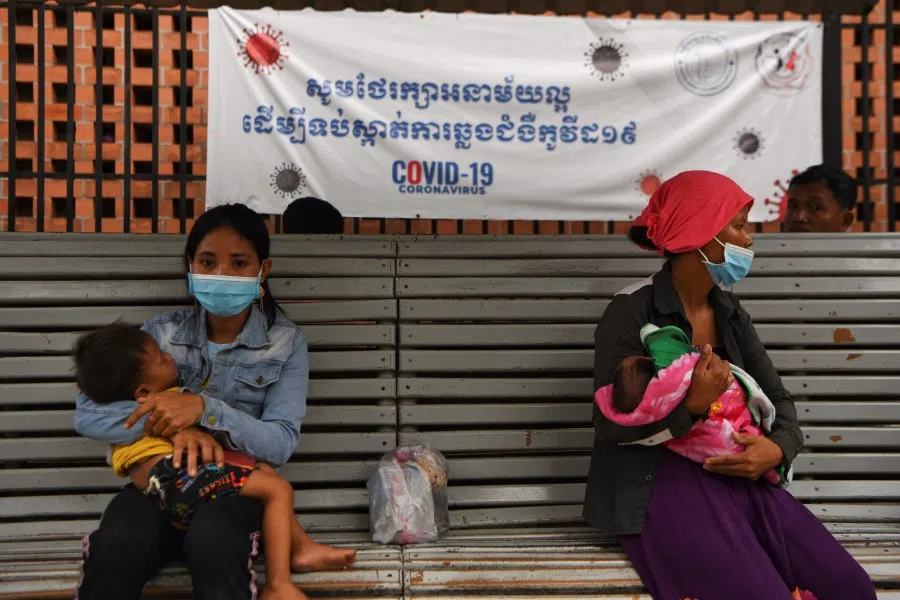
Cambodia's close alignment with China has been on clear display since the 2010s. In 2010, the country upgraded its bilateral relations with Beijing to a comprehensive strategic partnership of cooperation. In 2012, when Cambodia was the chair of ASEAN, it was harshly criticised for blocking ASEAN's joint communiqué, leaving this regional grouping unable to issue a joint statement for the first time in its 45-year existence. The Philippines and Vietnam had wanted to include references to their territorial disputes with China in the joint statement, but Cambodia refused. The same problem happened again in 2016 and Cambodia was once again blamed for its opposition to joint communique language that condemned China's territorial claims in the South China Sea.
...other than satellite data to support the speculations, concrete evidence of Chinese military presence in Cambodia remains lacking, at least at this stage.
Cambodia's increasing tilt toward China has placed it in a unique and challenging position vis-à-vis its peers in the region. A report by The Wall Street Journal (WSJ) in 2019 claiming that Phnom Penh had signed a secret deal with Beijing to allow the Asian giant military access to a naval base in Sihanoukville province put Cambodia in the spotlight again. There are allegations and speculation that have kept resurfacing, particularly as regards the construction of a potentially dual-use port in Koh Kong province capable of hosting China's military aircraft and warships. All these speculations have however been repeatedly denied by the Cambodian government.
To dispel doubt and rumours about Chinese military being on Cambodian soil, the Cambodian Ministry of National Defence invited around 70 national and international journalists to visit and inspect the offending Ream Naval Base. The visit revealed no signs of any foreign military and the WSJ report was dubbed "fabricated news" by the Cambodian government. Thus, other than satellite data to support the speculations, concrete evidence of Chinese military presence in Cambodia remains lacking, at least at this stage. Despite this, the rumours and speculations have continued to swirl, and have further tarnished Cambodia's image on the regional and international stage.
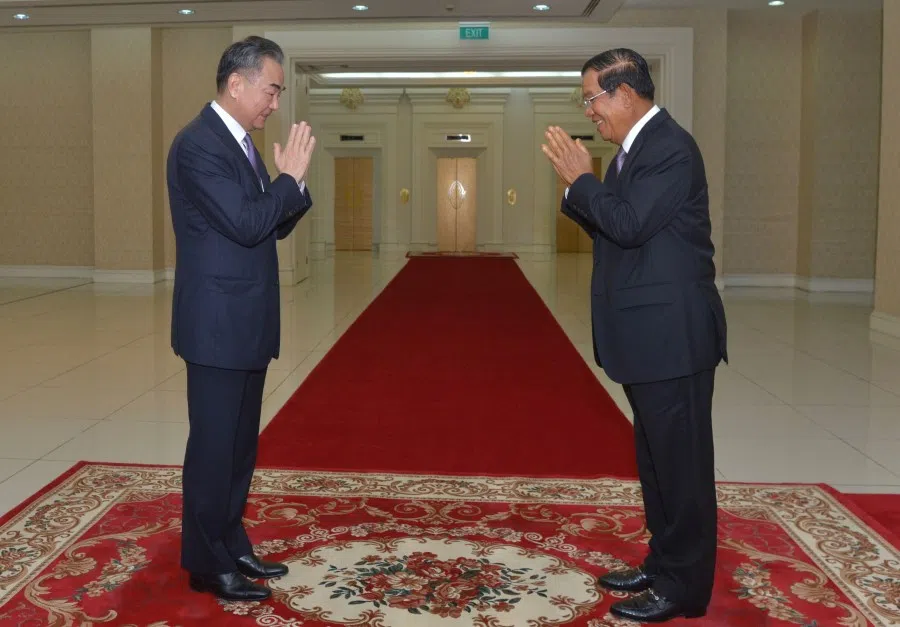
In general, Cambodia is now seen to be closely aligned to China at the expense of its relations with other countries, both in the region and beyond. A recent survey of almost 500 Cambodian university students by PhD students from the University of Cambodia showed that a large majority of them (81.7%) believed that the country had closer relations with China than with the US. More than two-thirds (72.6%) of these student participants, however, at the same time wished that Cambodia had closer ties with the US than China and "aspire to see Cambodia become more democratic, have a better human rights record, and promote freedom in all walks of life". Therefore, one of the great challenges for Cambodia's foreign policy post-Covid-19 is to strike a good balance in its relations with China and the US as well as among other major powers such as Japan and the EU.
Moving forward, Cambodia must be smart and flexible to avoid being caught in the middle of a Cold War between China and the US. In the time of great uncertainties caused by the Covid-19 pandemic and the intensifying US-China strategic rivalry, it is crucial that Cambodia pursues greater diversification in its external relations. Failing to do so would increase risks of being a battleground for great power competition, a scenario similar to the one that Cambodia was in half a century ago.
Issues of corruption, cronyism, land grabbing, environmental degradation, sustainable development, and the widening divide between the rich and the poor will loom large.
Dominating domestic politics
Third, Cambodia's foreign policy has been driven by the politics of regime survival. This will become more visible and prevalent in the post-pandemic world as the ruling Cambodian People's Party (CPP) tries its best to remain dominant. Hun Sen himself has claimed that his party will continue to be a dominant force in Cambodian politics for up to a century. This seems possible given the fall of the only viable opposition party, the Cambodia National Rescue Party, and the potential success of Hun Sen's grand plan to hand power to his oldest son, Lieutenant General Hun Manet. The latter concurrently holds the posts of deputy-commander-in-chief of the Royal Cambodian Armed Forces, member of the CPP Permanent Committee, and head of the CPP Youth Wing.
Despite this, political dominance by Hun Sen's CPP will not be smooth. The longer it remains in power, the greater the number of people who will be unhappy with the CPP-led government. Even though there is remarkable economic development, there are a lot of issues that can increase discontent and dissatisfaction among Cambodians, especially younger ones who do not perceive the CPP as a saviour of Cambodia from the genocidal Khmer Rouge regime. Issues of corruption, cronyism, land grabbing, environmental degradation, sustainable development, and the widening divide between the rich and the poor will loom large. The current government needs to address these issues to gain popular support, particularly from voters born after 1979, when the Khmer Rouge was toppled by Vietnamese forces.
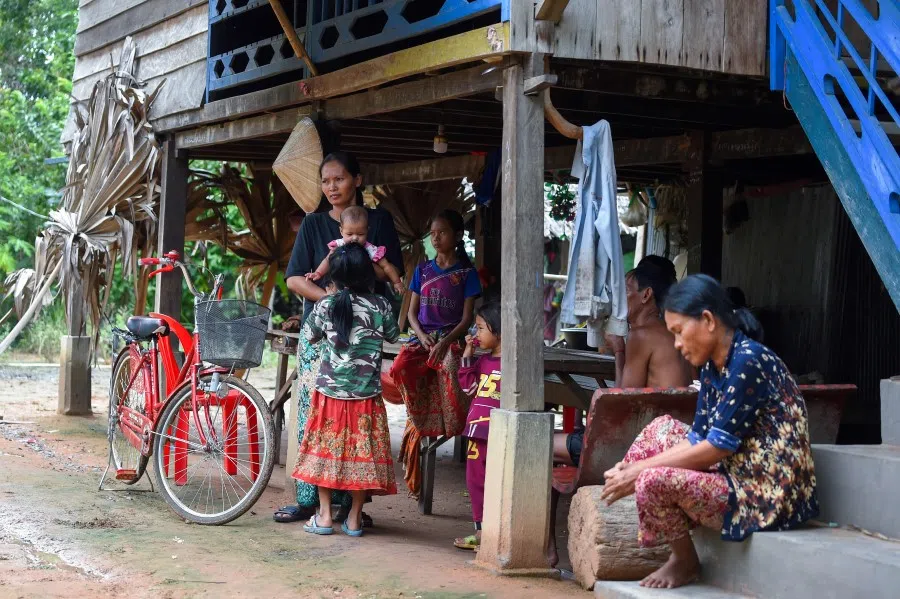
As regime survival will continue to be a powerful force driving Cambodia's foreign policy, tensions between foreign affairs and human rights are more likely to rise. This is a dilemma the present Cambodian government is facing. To sustain its political dominance, the government must ensure that the opposition group is kept under control through various and all means, including resorting to illegal measures. However, the government's efforts to contain the rise of the opposition and to muzzle government critics will be seen by the international community as crackdowns on dissents. Issues of human rights and democratic backsliding will then prevent Cambodia from engaging meaningfully with major democracies, including the US and countries in Europe such as Sweden.
Given the intensification of US-China strategic competition, Cambodia needs to walk a tightrope, balancing China and the US.
The way forward
Moving forward, Cambodia must address its domestic politics, enhance broad international ties and adopt flexible foreign policies. It is crucial for Phnom Penh to increase its engagement with countries in the region and other key partners such as Australia, China, France, Germany, India, Japan, South Korea, Sweden, the UK and the US.
Cambodia must refrain from actions that appear to serve Beijing's core strategic interests. Leaning towards China - or appearing to do so - at the cost of its relations with other key players such as the US, is not a sustainable foreign policy approach. Engaging all strategic partners should be the way forward for a small state like Cambodia. History has shown that taking sides or heavily tilting towards one power is not a viable approach and presents significant security risks. Given the intensification of US-China strategic competition, Cambodia needs to walk a tightrope, balancing China and the US.
Aligning itself more closely with China or the US is not an effective foreign policy considering the significant role and influence of both superpowers in the region and in Cambodia. As noted by a Cambodian analyst, if Cambodia leans towards the US, "it risks aggravating China and potentially jeopardising the projects, aid and grants which China currently provides", thus affecting Cambodia's development goals. However, if Cambodia continues to align itself more closely with China, the future of its democracy will be bleak. The country will risk facing sanctions or aid cuts by the US and its key allies such as the EU.
In summary, Cambodia's foreign policy post-Covid-19 will face great challenges that come from both inside and outside the country. Internally, the Cambodian government must make genuine efforts to reverse Cambodia's authoritarian turn - a turn that only serves the interests of Hun Sen's regime and its beneficiaries, not those Cambodians who are hungry for more freedom, better human rights and democracy. The government must reconsider its approach to engage key stakeholders such as human rights activists, democracy advocates, civil society groups and youths. These actors play a pivotal role in the development of democracy and the improvement of socioeconomic conditions in the country.
To avoid being caught in the middle of the US-China strategic rivalry, Cambodia should demonstrate a neutral foreign policy... However, Cambodia's actions seem to show otherwise.
Externally, Cambodia must proactively engage key strategic partners in Southeast Asia and in the wider Indo-Pacific region. Cambodia may need to reconsider its close alignment with China. No doubt, China's role in Cambodia's socio-economic development is considerable; however, China's growing influence in Cambodia has raised concerns among Cambodians, countries in the region and other powers that seek to contain China's influence in Cambodia and Southeast Asia.
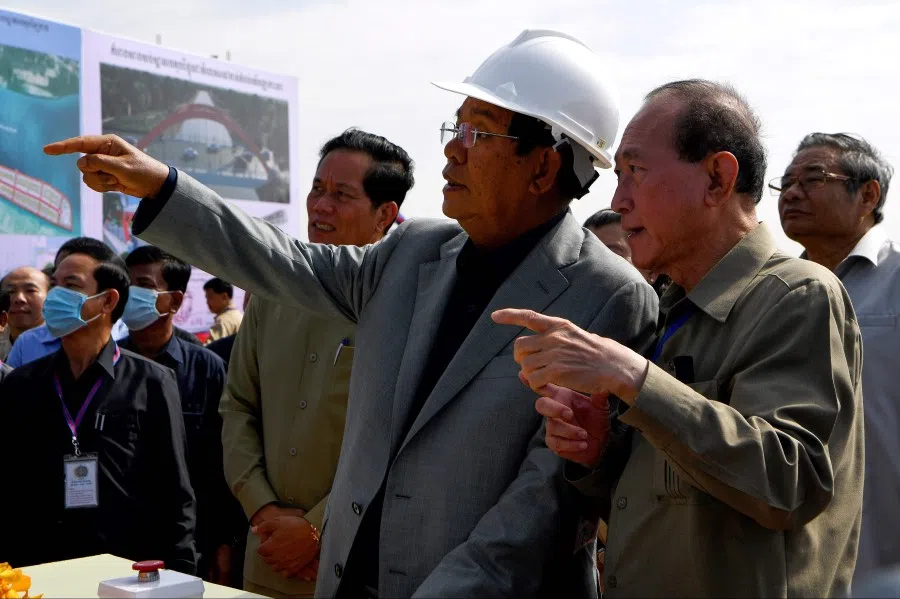
To avoid being caught in the middle of the US-China strategic rivalry, Cambodia should demonstrate a neutral foreign policy. The principles of "permanent neutrality and nonalignment" are enshrined in the country's constitution. However, Cambodia's actions seem to show otherwise. Thus, it is imperative that Cambodia proactively engage in multilateral mechanisms and support a rules-based international order.
Cambodia must ensure that its engagement with China will not have a negative impact on the unity and centrality of ASEAN. Cambodia's past action that led to ASEAN's inability to issue a joint statement for the first time in its 45-year history damaged Cambodia's image, as has its support for China's internationally unpopular positions as regards Hong Kong and the South China Sea. Improving the capacity of its diplomats and reassessing its China engagement policy are crucial to the improvement of its international image.
Avoid putting all eggs in one basket
Overall, Cambodia needs to push for the maintenance and improvement of its ties with key partners such as the US. It also needs to avoid putting all its eggs in one basket - the Chinese basket to be precise. A new and innovative foreign policy vision informed by notions of inclusiveness, sustainability and genuine neutrality must be advanced. Moreover, Cambodia needs a vision that goes beyond the politics of regime survival. National interests and a prosperous future for the country must be a central driving force in foreign policy decision-making.
At present, there are efforts made to mend and improve ties with the US; at the same time, Cambodia is often seen to act in support of China's interests in the region. This trend needs to change as Cambodia strives to become an upper-middle-income country by 2030.
This article was first published as ISEAS Perspective 2020/132 "Cambodia's Foreign Policy Post-COVID-19: Key Challenges" by Kimkong Heng.
Related: Cambodia: Hard landing for China's soft power? | Hun Sen's China visit: Love in the time of coronavirus | China's Belt and Road Initiative faces huge challenges in Southeast Asia | The Mekong River's future and the role of China | Chinese academics: Mekong must not become second South China Sea



![[Video] George Yeo: America’s deep pain — and why China won’t colonise](https://cassette.sphdigital.com.sg/image/thinkchina/15083e45d96c12390bdea6af2daf19fd9fcd875aa44a0f92796f34e3dad561cc)
![[Big read] When the Arctic opens, what happens to Singapore?](https://cassette.sphdigital.com.sg/image/thinkchina/da65edebca34645c711c55e83e9877109b3c53847ebb1305573974651df1d13a)
